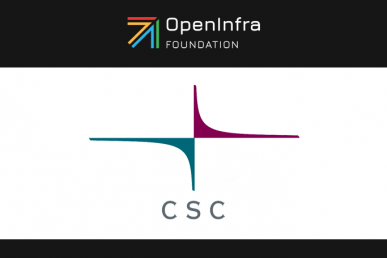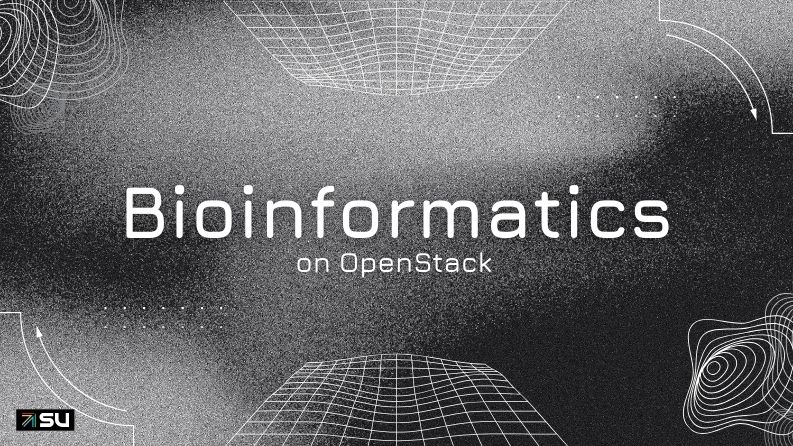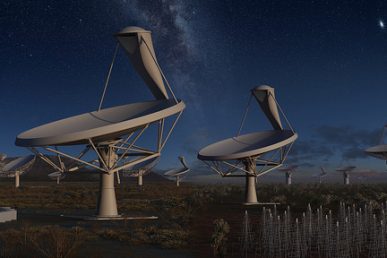Advances in life sciences and information technology bring profound influences on bioinformatics due to its interdisciplinary nature; bioinformatics is experiencing a new leap forward from in-house computing infrastructure into cloud computing to handle the vast quantities of biological data generated by high-throughput experimental technologies. The availability of high-throughput technologies and the application of genomics and pharmacogenomics studies of large populations are producing an increasing amount of experimental and clinical data, as well as specialized databases spread over the Internet.
The German Network for Bioinformatics Infrastructure, or in short »de.NBI«, is a national research infrastructure providing bioinformatics services to users in life sciences research, biomedicine, and related fields.
How does cloud technology maintain clinical genome research?
Technology and resources promoted by the German Human Genome Project are starting to have profound impacts on biomedical research and promise to revolutionize the wider spectrum of biological research and clinical medicine. Increasingly detailed genome maps have aided researchers in seeking genes associated with dozens of genetic conditions. The practical consequences of the emergence of this new field are widely apparent. Identification of the genes responsible for human Mendelian diseases, once an arduous task requiring large research teams, many years of hard work, and an uncertain outcome, can now be routinely accomplished in a few weeks by a research scientist with access to DNA samples and associated phenotypes, an easy connection to the private genome databases, a thermal cycler and a DNA-sequencing machine.
de.NBI hosts data for the German Human Genome Project. Due to the nature of the system to handle human genome data, demanding reliability and resilience is a real test for the whole cloud system.
Through a cloud federation concept, all five de.NBI sites, Bielefeld Uni, Freiburg Uni, Tübingen Uni, Heidelberg Uni, and Giessen Uni, are integrated into a single cloud platform. The growth of storage volume, preprocessing and analysis of experimental data is becoming the main bottleneck of the analysis pipeline.
As a result, the user will be guided to the envisaged service and the suitable cloud via the central de.NBI cloud portal.
Sardina FishOS forms the backbone of de.NBI Cloud, to facilitate advanced European scientific discoveries. The highly reliable platform based on OpenStack and Ceph enables integrative analyses and efficient use of data towards scientific breakthroughs.
Breakthroughs cloud technologies solve scientific issues
de.NBI’s multiple systems combine FishOS OpenStack and Ceph to provide ultra-reliable platforms for traditional research and next-gen applications, with data security and protection. To achieve de.NBI’s purposes the critical requirements for Ceph storage included: geo-redundancy over multiple sites, encryption-at-rest, asynchronous mirroring, and choice of uni-directional or bi-directional mirroring. The systems support multiple storage and per-pool configurations for both snapshot and journal modes of mirroring and for snapshots set up to take them at scheduled times.
So as to accelerate computations, the cloud platform features advanced Nvidia GPU acceleration.
With multiple OpenStack-based and Ceph-based clouds spanning multiple locations and regions, the systems’ day-to-day operation is made simple and flexible, with pre-integrated operations tools for the cloud platform, with smart predictive analytics, and intelligent resource management.
From FishOS with care
Sardina implemented a solution design, based on FishOS’ operational architecture, allowing de.NBI to manage the multiple systems with fully automated, flexible, reliable, and scalable operations and a market-unique Zero-Downtime upgrade. Today, de.NBI runs four systems with a FishOS solution based on OpenStack, Kubernetes, and Ceph. Sardina also migrated one of the systems from Ubuntu OpenStack.
Providing cloud environments for de.NBI computing center in Tübingen, firstly FishOS implementing programs include infrastructure, various workflow solutions to construct pipelines, and tools with a particular focus on the analysis of high-throughput data (genomics, proteomics, metabolomics, etc.).
Secondly, one major aim of the de.NBI cloud site in Tübingen is to provide software covering different scientific fields of research such as mass spectrometry analysis, NGS analysis pipelines but also molecular docking via Ball integrated into Galaxy workflows (galaxy). FishOS eases the day-to-day operation of the de.NBI systems make it simple and flexible, thanks to its pre-integrated operations tools for the cloud platform. The systems’ users benefit from smart predictive analytics and intelligent resource management.
Today, Sardina brainchild FishOS runs cloud infrastructures to research massive data, make scientific discoveries and help to deliver high-level medical services to people in different
countries. We are proud to realize that IT technologies, like FishOS, make an impact in Human Genome Research development.
- Cloud Technologies Maintain the Genomic Era - May 18, 2022

)










